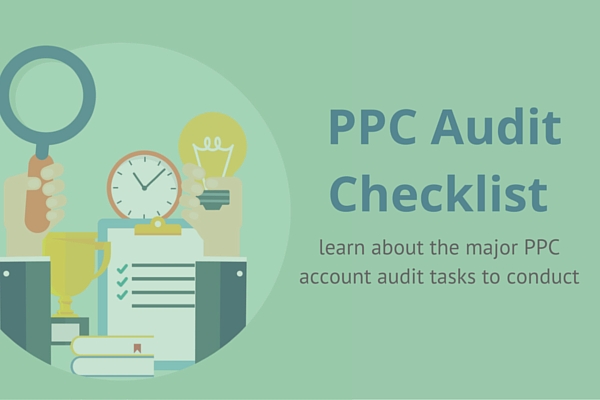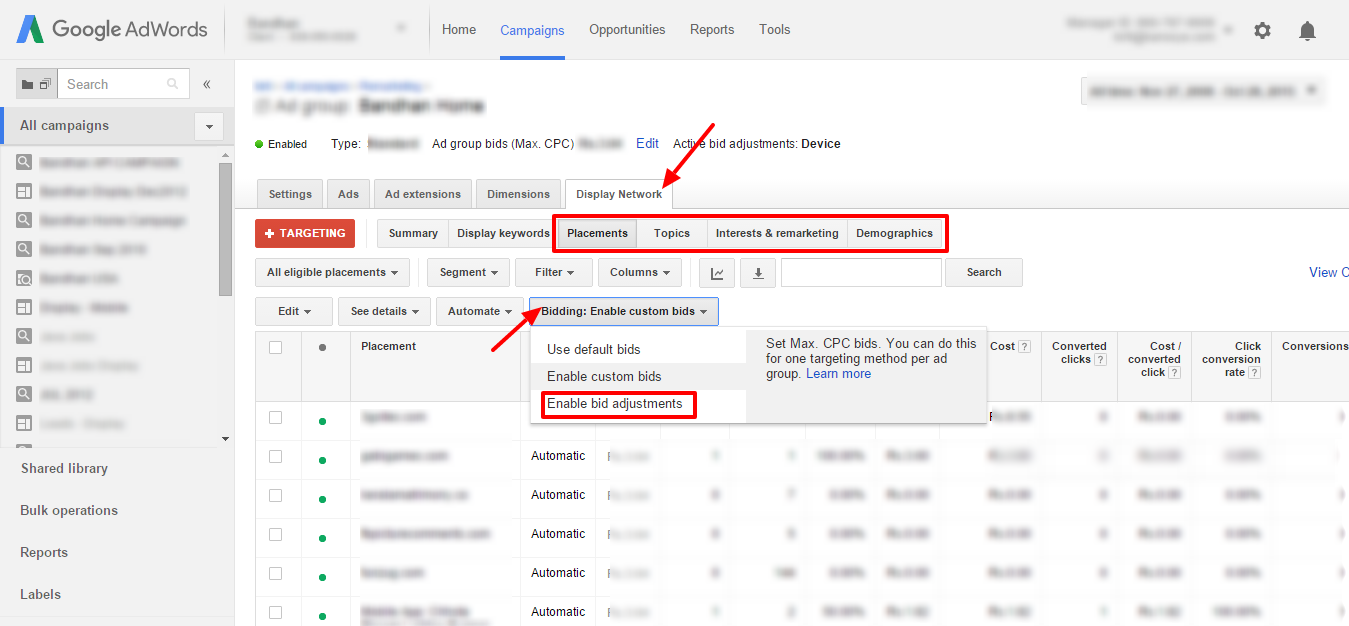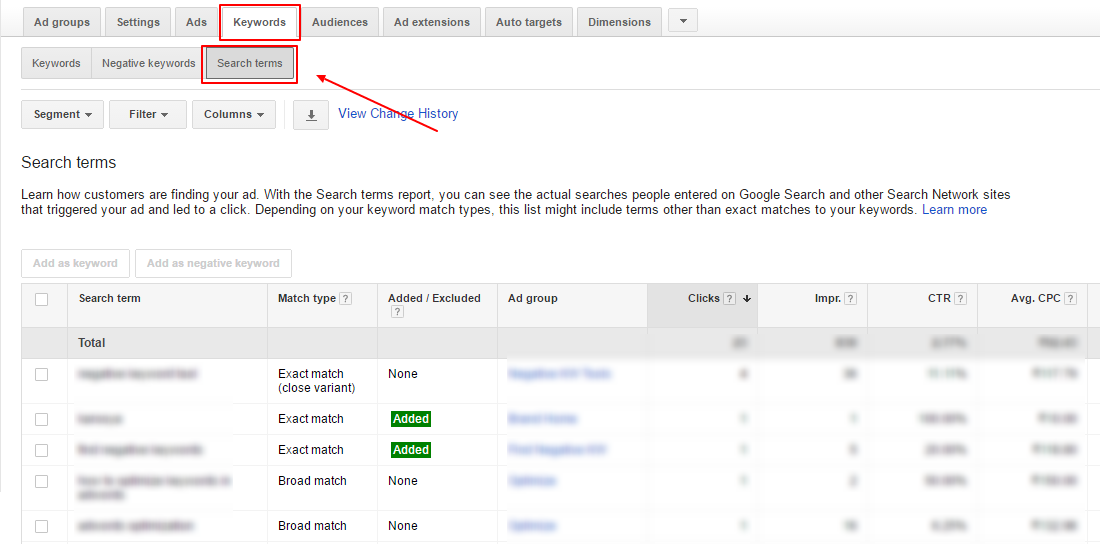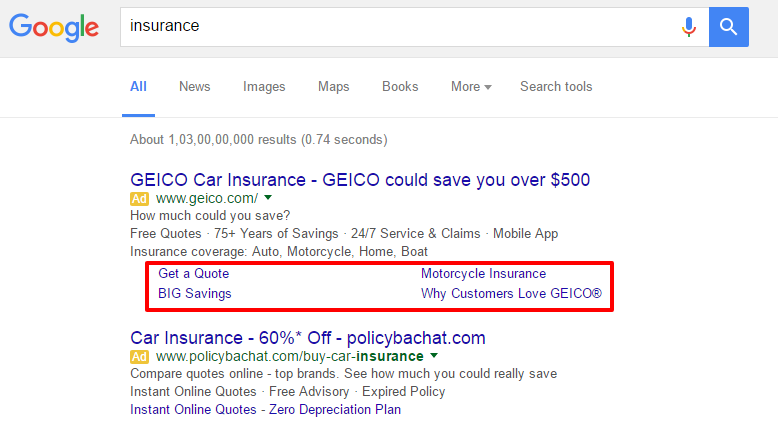PPC audit is the process of analyzing your account, revisiting the general settings that were previously overlooked and syncing new features or settings to improve account performance. But what areas should you look at? With so many improvement prospects, you might get baffled between shortlisting the focus points and deciding what changes to make.

To simplify the process of auditing your account, here is a handy checklist that you can consult.
Here are the essential PPC audit tasks that you must look into
Campaign Settings
While setting your campaign, advertisers tend to miss looking at the default campaign settings that has been set. You must, firstly check if your default campaign type set to ‘Standard’ ? If yes, then you would be then missing out on some of the opportunities there. Select ‘All Features’ to access them. You can then do the following
- Set up ad scheduling to your campaign to show you ads on day(s) or hour(s) when you receive satisfying results
- Use ad rotation to optimize and organize showcasing multiple ads in a campaign
- You can access advanced location targeting settings and restrict your ad to show only for locations selected by you, excluding the rest or as per your targeting goals.

Further, under campaign settings, ‘All Devices’ are chosen by default. If you wish to alter showing your ad for certain device, you can make use of the bid adjustments under this section, to alter your biddings. Similarly you might want to have a look at other campaign features and adjust bids there to in order to have more control over your bidding strategies. For reminders, bid adjustments can also be made for ad schedule, location and display network targeting.

Keyword Analysis
Yet another important component of your PPC account are not only the keywords you are bidding on but the keywords that you haven’t been bidding on. To view the prospect keywords, you need to pull out the ‘Search Terms‘ that have been driving clicks to your ads. The relevant keywords can be added as bidded keywords where the irrelevant search terms can be added as Negative Keywords. Further, using an automated tool saves you from spending too much time and seamlessly lists down negative keywords. Not to mention, this will also save the wasted ad spend on Google Ads. Give our negative keywords tool a try.
Note: Now, our Negative Keyword Tool is Free for accounts with ad spend less than $10,000 per month. Save 10-20% of your search ad spend for free.

While auditing you would also want to check the keyword match types used:
- If maximum keywords are of ‘broad’ match type, then your ad spend must be getting depleted as a result, which could be adjusted by using negative keywords and adding exact/ phrase match bidded terms
- If maximum ad spend is as a result of ‘exact’ match keywords, then the missed opportunities here can be tapped by using Phrase and broad match modifier terms.
Similarly, you must think about checking your campaign for the following:
- If there are any negative keywords at all? Try adding the negative terms that you consider irrelevant to your business.
- If there are duplicate keywords? Try removing such unwanted terms to have a more controlled ad group
- If there are too many keywords per ad group? You can think about either splitting the ad group so that your ad rank and quality score can be sustained.
All these actions lead to improved CTR which in turn affects your Quality Score and CPC, so you might want to doubly emphasize on your keyword analysis.
Tracking
As much a campaign ingredient such as ad, keywords, targeting, etc. is important, tracking too is a crucial element to determine how your campaign has been performing. So check for the following:
- Is your Google Ads account linked with Google Analytics?
- Have you set up conversion tracking code on your website?
- Have you defined your conversion action?
Ad Extensions
We have been reading a lot about the importance of ad extensions in improving an ad’s CTR. So do all your campaigns have at least one ad extension? Check for the ad extensions that have been put to use and how they have contributed in driving clicks or calls to the business. With so many options, even if there are certain extensions that cannot be put to use, then still you can think about adding Sitelink or Callout extensions to make some of the features of your business stand out.

Account Structure
Is your account organized with proper and logical naming so that you can differentiate between the campaigns? Are there separate campaigns created for brand vs. non brand terms or basis interests/ topics/ products/ services/ network type? Are the ad groups created with a purpose such as having keywords of different match types together, separate ad group for your major keywords, ad group broken down into ones with high CTR vs non-performing ads etc.? All these parameters contribute in creating a more controlled PPC account and hence makes further analysis easier with defined purposes for campaigns/ ad groups and keywords.
Remarketing
You might want to check if the account has set any remarketing campaigns or not. If not then it might be a good idea to get started with it. However, if you have a remarketing campaign running then you might want to re-look at which abandonment level has the remarketing code been installed and whether there are other places from where the remarketing lists could be created and targeted.

Ad Details
It might just turn out to be fruitful to re-check your running ads for some common errors such as spellings, grammar, an expired offer/ date, product/ service you don’t offer anymore or whether the ad landing page URL is broken, would you want to alter the messaging as per revised company standards? All these questions can be asked when you go about scrutinizing your ad messaging.
Now that you have the action items in place, you must decide on how often you would want to conduct PPC audit of your account. With all things in place, your PPC account can be groomed and optimized for results.
Related Articles:






Shirish
Along with checking your CPAs based on device , you can also look at them on a geographic level as often some locations will deliver more expensive cost per conversions than others. I think consisntecy is key as too often I find clients not checking their accounts at all which is a surefire way to loose money on Google Ads…here’s a post where I posted results from an actual client audit: https://www.flow20.com/blog/real-account-adwords-audit/